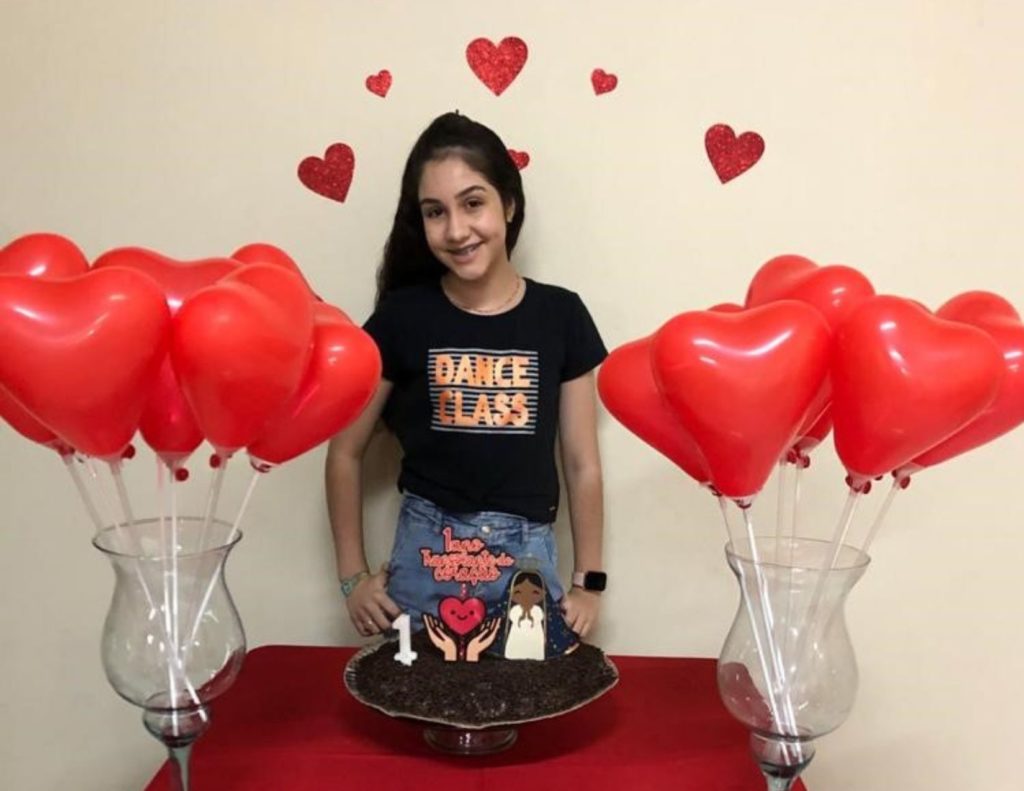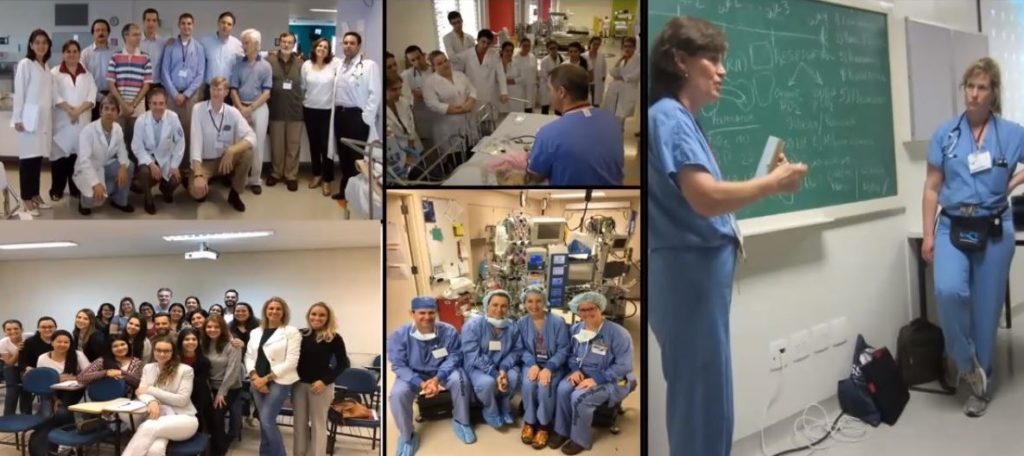One year ago, a 12-year-old Maria Fernanda from Brazil received her new heart. The first thing she asked after recovery was to go to one of the beautiful Brazilian beaches. When she was first seen at our partner Hospital da Criança e Maternidade (HCM) a few months prior to her surgery, she was in severe heart failure. The team in Rio Preto didn’t have much experience to treat patients with her type of heart condition and to complicate matters, the world had just entered a global health pandemic.
Fortunately, the HCM team found a way to help Maria Fernanda. The online guidance they received from our volunteer institution Seattle Children’s Hospital helped them determine the best treatment for Maria Fernanda before the heart transplant procedure, the right timing for surgery, and the best postoperative care. Today Maria Fernanda is doing great and can better enjoy her trips to the beach.
The pandemic forced us to re-envision Children’s HeartLink’s training model and develop a hybrid model that includes both in-person and remote training. Children’s HeartLink and our long-term medical volunteer and medical director Dr. Mark Lewin from Seattle Children’s Hospital initiated the development of a virtual lecture series for our Brazilian partners right before the pandemic hit. Back then, nobody knew that this training would become an essential part of our partnership in Brazil when face-to-face teaching became limited due to travel restrictions.

Maria Fernanda’s 1-year post-transplant celebration
“Even in the pandemic, we are able to improve our knowledge through partnerships with Children’s HeartLink. And thanks to virtual sessions, we established relationships with doctors, physicians and nurses from Seattle Children’s Hospital who we can contact when it’s necessary. It is really important,” says Dr. Carlos de Marchi, pediatric cardiologist at HCM.
Ten lectures in 2020 were dedicated to caring for children with a single ventricle defect (basically, half a heart) – nutrition, interstage care between surgeries, the need for medication, and how to keep these children healthy throughout the years. The topic of lectures in 2021 is heart failure – how to help children like Maria Fernanda – how to diagnose, evaluate, manage and treat heart failure. In addition to this, Seattle Children’s Hospital conducts bi-monthly lectures and case discussions for ICU nurses and respiratory therapists.
“There are significant benefits of virtual training in terms of the number of people that we can connect with and being able to put a variety of specialists in front of trainees. This has been a highly successful endeavor,” says Dr. Lewin. “The next phase is assessing this training to better understand how it actually impacts the care of the patients. Honestly, the same can be said about the training in person: you really need to have a feedback loop to determine if the teachings make any difference in terms of the care of the patients on the ground.”
Since the start of the lecture series, over 400 professionals from our partner hospitals in Brazil and other centers throughout the country have received training. These lectures are accompanied by simultaneous Portuguese translation.

HCM partnership with Children’s HeartLink
“At the beginning of the pandemic, we were worried that we could lose the partnership with Children’s HeartLink as its medical volunteers couldn’t travel. Of course not. Our communication has just improved. The lecture series with extremely useful content is amazing, and we are so thankful. It has been helpful not only for our team at HCM but we also share this webinar series and this knowledge with professionals from other centers that take care of children with heart disease,” says Bruna Cury Borim, RN, MSN, nursing coordinator at HCM.
Children’s HeartLink started a partnership with Hospital da Criança e Maternidade in 2009. The hospital is currently in the phase when its primary mentors – Mayo Clinic and Children’s Minnesota – prepare the pediatric cardiac program to become regional trainers and the first in Brazil Children’s HeartLink Center of Excellence.
Read our blogs about HCM: Ten Years in Brazil Yields Complex Surgeries + Huge Decrease in Infection and How Medical Volunteer Patsy Stinchfield Cultivates Culture of Safety
Children’s HeartLink saves children’s lives by transforming pediatric heart care in underserved parts of the world. Founded in 1969, we currently support 18 partner hospitals in Brazil, China, India, Malaysia and Vietnam. Even in this challenging time, our medical volunteers trained over 4,300 professionals and helped more than 122,000 children worldwide.
Donate now and help us improve heart care around the world. Your gift, no matter the size, can help children get access to care, regardless of their birthplace.
